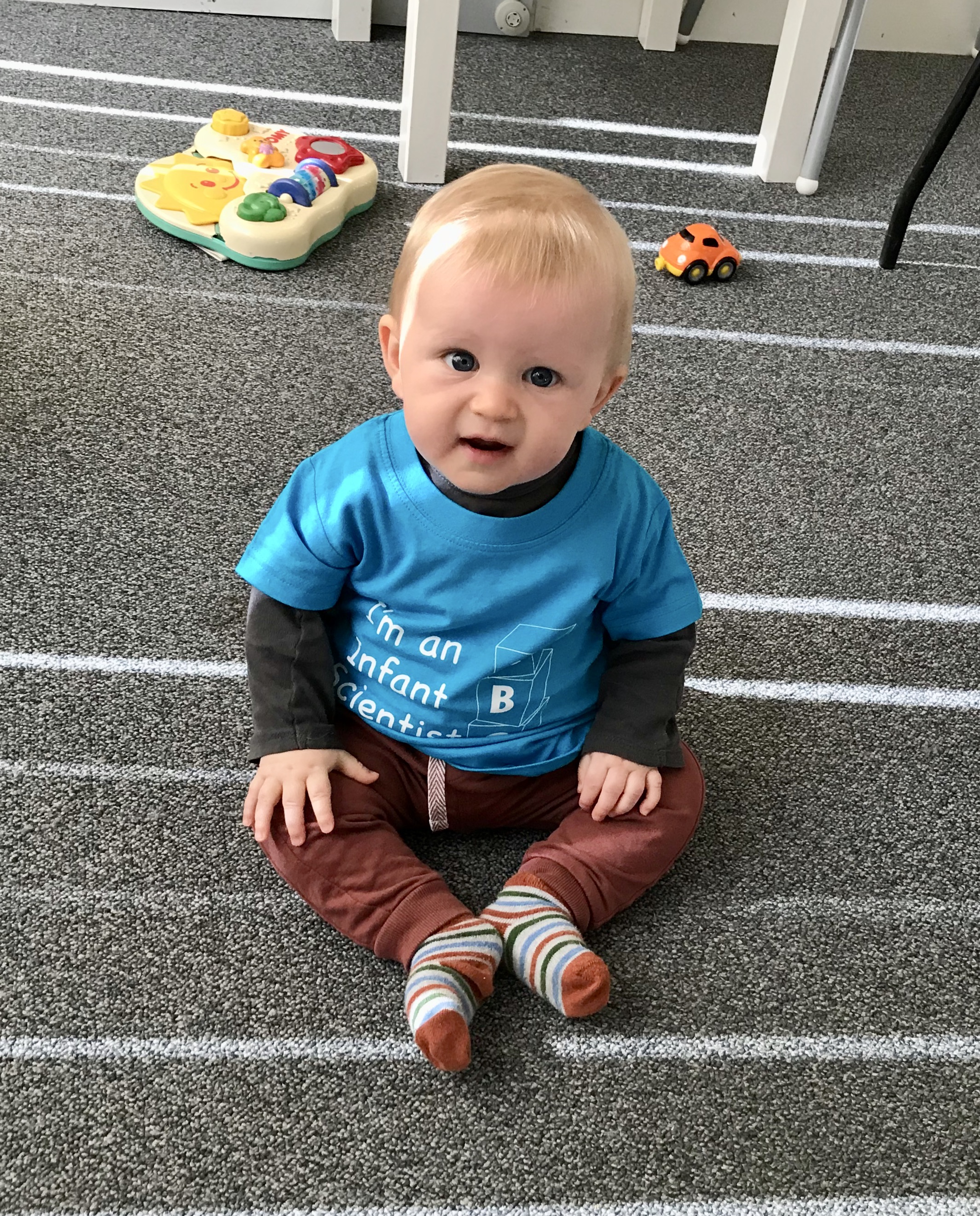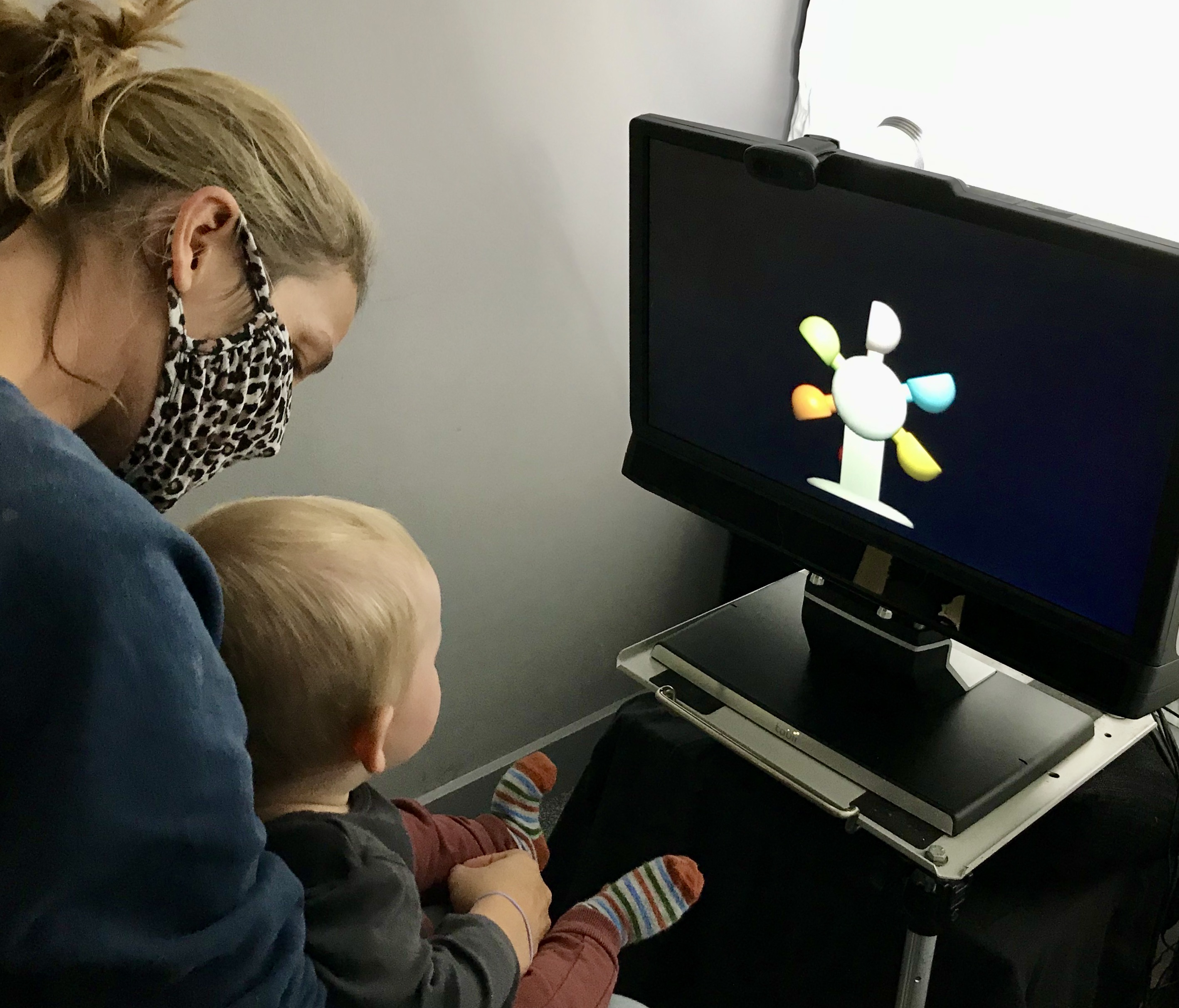Past Events
Birkbeck Careers & Employability bring you the '2016 Graduate Careers Fair' where you'll have a chance to meet over 30 employers and organisations offering a range of opportunities for you to discover and explore for after your study.
Businesses from a wide range of sectors will be avaliable to discuss the work they do and the ways in which you could advance your career with them.
Birkbeck's Big Ideas is a series of FREE events, designed to inspire and bring world class Birkbeck academics to the local community
The series will run every 2nd Wednesday of the month, from July to May 2017. With this instalment from Prof Matthew Longo
In this talk Professor Longo discusses, Building body image through fusion and segmentation:The key hypothesis underpinning the research project, called Building body representations: an investigation of the formation and maintenance of body representations, is that body representation is determined by integrating information from different sensory modalities.
The next Birkbeck-UCL NIRS training course will take place from Wednesday 22nd to Friday 24th March 2017, at Birkbeck, University of London.
Professor Gergely Csibra
Talk Title: Human infants infer social relations from observed interactions.
Abstract: Observed social interactions between agents provide information not only about their individual dispositions but also about their social relations. Recent studies demonstrate that when human infants observe actions of an agent that could potentially affect the welfare of another individual (the patient), they tend to include the patient in the representation of the event. We do not find evidence that infants would attribute social dispositions to agents. Rather, infants seem to be concerned with the social relation in which the agent and the patient are embedded. For example, in conflict situations the succeeding actor is inferred to be dominant over the failing actor, tolerated taking may indicate shared long-term interest between the agent and the patient, and a giving action may be represented as an episode of exchange among equal peers that invites reciprocation. Based on Alan Fiske’s theory of basic forms of social relations, I outline a proposal on how human infants could infer the type of social relation in which the participating agents are likely embedded.
Date: January 31st at 13:00
Location: Room B04 Malet Street (Birkbeck Main Building)
No booking required
Professor Chris Jarrold
Talk Title: Rehearsal and the development of verbal short-term memory
Abstract: Verbal short-term memory (VSTM) undoubtedly improves across childhood, and understanding the causes of this increase is of both theoretical and practical importance, given links between VSTM function and vocabulary acquisition. An influential view is that apparent changes in VSTM capacity are reflective of development in the use of rehearsal to support performance, but in this talk I critique that position, before putting forward a radical reassessment of the status of rehearsal in VSTM development. I focus in particular on the claim that children undergo a qualitative change in their use of rehearsal around the age of 7. Here I show that key evidence to support this view can be explained simply in terms of the general improvements in memory capacity, and then explore the implications of this novel account for the development of VSTM in children.
Date: February 28th at 13:00
Location: Room 402 Malet Street (Birkbeck Main Building).
No booking required
Mind the Generation Gap! Uta Frith in conversation with Clare Press, Matthew Longo and Emily Jones.
Uta Frith, who looks back on a 50-year research career, will be in conversation with three young researchers, who all have recent experience of maternity/paternity leave. They will discuss questions about life and work, particularly how to manage gaps and transitions. The conversation will try to open up discussion about exactly how people of the older generation can share their knowledge and how personal experience can benefit others.
Date: Wednesday, 8 March 2017
Time: 16:00-17:00 (drinks reception to follow from 17:00)
Venue: Room B34, Birkbeck (Main Building), University of London, Malet Street, London WC1E7HX (entry from Torrington Square)
Drinks reception to be held at: Rayne Seminar Room, CBCD, Henry Wellcome Building (across Torrington Square from Main Building, entrance on footpath between Torrington Square and Woburn Square)
Uta Frith was born and educated in Germany and trained in clinical psychology at the Institute of Psychiatry. She is best known for her research on autism and dyslexia and is now Emeritus Professor of Cognitive Development at UCL-ICN. Since retiring in 2006, Uta has expanded her interests in science communication. She is a Twitter enthusiast and chairs the Royal Society’s Diversity Committee.
Clare Press studied at UCL before undertaking a fellowship at the Wellcome Trust Centre for Neuroimaging. Her first lectureship was at the University of Reading, and she is now a Senior Lecturer in the Department of Psychology at Birkbeck. She examines the mechanisms that underlie our ability to map between action and perception, as needed for action control and some social abilities. Clare also manages Research Methods teaching and UCAS Admissions within the department.
Matthew Longo studied at the University of California, Berkeley and the University of Chicago before moving to the UK in 2006. He was a postdoc at UCL-ICN before he joined the Department of Psychological Sciences at Birkbeck, where he is now Professor of Cognitive Neuroscience. Matt’s research focuses on the psychological and neural bases of body representation. He is the director of the master’s course in Cognitive Neuroscience and Neuropsychology and the head of the department’s Athena SWAN working group.
Emily Jones is a Lecturer at CBCD. She studies the mechanisms underlying symptom emergence in neurodevelopmental disorders such as Autism and ADHD. To do this, Emily uses neurocognitive and neurophysiological methodologies like eye tracking and EEG to assess brain development. She also coordinates the Eurosibs study, a prospective longitudinal study of infant siblings across 7 European countries and is part of the EU-AIMS project, which aims to develop new treatments for ASD.
7th of March 2017 at 13.00 (External Seminar)
Location. B34 Malet Street, Birkbeck College
Dr Karla Holmboe University of Essex
Longitudinal development of attention and executive functions during the first year of life
Executive functions (EF) are a set of skills that allow us to control our thoughts and actions in everyday life. These skills improve rapidly during early childhood as children develop their working memory capacity, their ability to exert inhibitory control, and their cognitive flexibility. Evidence suggests that early forms of EF, such as the ability to inhibit a prepotent response, are in place around 9 months of age. However, little is known about whether such abilities exist earlier than this. It is also possible that more basic attentional processes in early infancy form the ‘building blocks’ of emerging EF towards the end of the first year of life. In this talk, I will present data from a longitudinal study investigating these questions in a cohort of 104 infants. Infants were tested on two simple attention tasks at 4 months of age and on EF tasks at 6 and 9 months of age. The results provided little evidence that basic attentional functions at 4 months formed precursors for emerging EF at 6 and 9 months. However, there was good evidence for stable individual differences in EF from 6 months of age. This suggests that EF emerges earlier than previously assumed. Future research into individual differences in the development of EF could benefit from starting as early as the middle of the first year of life.
Kim Plunkett
University of Oxford
The ability to identify appropriate referents, given a label, develops rapidly during the second year of life, so that by the time an infant reaches her second birthday she may understand many hundreds, if not thousands of words. Although we know a great deal about the types of words that infants comprehend, surprisingly, we know very little about their appreciation of the meaning relationships between words themselves. These meaning relations lie at the heart of the human semantic system: Part of knowing what the word ‘dog’ means involves knowing, if only implicitly, how it relates to the meaning of ‘cat’ or ‘bone’. A proper understanding of human semantic development involves identification of how and when infants begin to link words together in a network of meanings, thereby going beyond word-world associations to achieve a system of meanings that underpins human communication.
In this talk, I will describe a series of experimental and computational studies designed to investigate how toddlers extract meaning from speech and when they begin to integrate word meanings into a network of relationships. The results of these studies suggest that toddlers exploit both taxonomic and thematic information in the construction of a semantic network and that this network has already begun to coalesce by 18 months of age. I also hope to have time to present evidence that inhibitory semantic mechanisms play an important role in lexical-semantic processing at least as early as 24 months of age, and to explore the implications of these findings for a computational account of early lexical development.
Date 16th May
Location Clore 101
Professor Manos Tsakiris
Talk Title: Interoception: from homeostasis to self-awareness?
Abstract: Modern Psychology has long focused on the importance of the body as the basis of the self. However, this focus concerned the exteroceptive body, that is, the body as perceived from the outside, as when we recognize ourselves in the mirror. This influential approach has neglected another important dimension of the body, namely the interoceptive body, that is, the body as perceived from within, as for example when one feels her racing heart. In psychology, research on interoception has focused mainly on its role in emotion. Recent research, however, has attempted to go beyond this approach, aiming instead to show how interoception and interoceptive awareness serve the unity and stability of the self, analogous to the role of interoception in maintaining physiological homeostasis. My talk will consider such findings from studies on infants and adults as a means of going beyond the division between interoception and exteroception to consider their integration in self-awareness. This approach provides an alternative to existing psychological theories of the self insofar it goes beyond the apparent antagonism between the awareness of the self from the outside and from within, to consider their dynamic integration and inform us on how humans navigate the challenging balance between inside and out, in terms of both the individual’s natural (interoception vs. exteroception) and social (self vs. others) embodiment in the world.
Date: 13th of June 2017 (External Seminar)
BASIS Network 2017Science Meeting,
Date: 29th of September 2017
Location: Clore Management Building, Birkbeck, University of London
Contact: ubdcle001@mail.bbk.ac.uk
More Information: https://www.eventbrite.co.uk/e/basis-annual-science-meeting-2017-tickets-35262725762?utm_term=eventname_text
Speaker: Dr. Sophie von Stumm
Title: Big Data in Developmental Psychology: Using new technologies for studying early life environments.
Date: 3rd Oct. 2017, 1PM
Location: Clore Management Building, Room 101, Birkbeck College, London, WC1E 7HX
Abstract: Digital technologies will revolutionise social science research methods, because they enable unobtrusive, yet detailed observations of phenomena as they occur in natural settings and develop in real-time. To illustrate the benefits and challenges of digital technology for naturalistic observations in developmental psychology, data and findings from a new study using digital audio recorders will be presented.
From the day-long recordings of 107 English-speaking children aged 24 to 48 months, measures of the language quantity and quality (i.e. lexical diversity) were extracted that children were exposed to in their family homes. The data suggest that (a) children's language exposure is unstable within families across time; (b) previous estimates of the the number of adult words that children hear throughout early life are highly inaccurate; and (c) children's cognitive and language development is associated with their language environment.
The findings demonstrate that digital technologies can help studying complex developmental phenomena and untangling their underlying mechanisms and elements.
Title: Brain evolution, brain maturation and the human social niche
Speaker: Prof Barbara L Finlay
Date: 17th Oct. 2017, 1PM
Location: Clore Management Building, Room 101, Birkbeck College, London, WC1E 7HX
Abstract: The duration of brain development across mammalian species, including primates, directly predicts adult brain mass, when normed from the onset of brain development. No feature of the order or rate of fundamental developmental processes, including features of initial differentiation, neurogenesis, synapse formation, early reflex onset, or volume change, distinguishes human brain development from other great apes. Adult brain organization changes progressively, and predictably, as conserved developmental processes play out in larger and larger brains. By contrast, the relative timing of two life history events clearly distinguishes humans from other great apes. Humans are weaned substantially earlier with respect to the conserved neurodevelopmental schedule, and only humans have menopause, an extended non-reproductive period in healthy later life. Early weaning gives humans a substantially longer period of neural plasticity in an extended social environment populated with culturally-variable constellations of parents, siblings, grandmothers and others, different from any other primate’s.
BASIS Network 2018 Science Meeting,
Date: Fri 21st of September 2018
Location: Clore Management Building, Birkbeck, University of London
Contacts: Elena Piccardi, epicca01@mail.bbk.ac.uk or Janet Parsons, jparso05@mail.bbk.ac.uk
15-16 November 2019
This past weekend we celebrated 21 (!) years of the CBCD with a 2-day conference. There were talks by former and present members of the CBCD who are now all over the world. Read Annie Brookman-Byrnes fantastic article to learn more about the conference and the broad range of science that the CBCD has been involved in in the past two decades.
You can access some of the recorded CBCD 21st Anniversary talks here. For a full schedule of the event please click here.
We are looking forward to 21 more years of exciting developmental science!

Our very own Dr Iroise Dumontheil is giving a lecture on using educational neuroscience for science/maths achievement in primary school as part of the Birkbeck 100 years of joining the University of London celebratory events. These are held on the theme of “opening education” thus showcasing Birkbeck’s unique commitment to access and excellence. For more details and to book your tickets click here.
When: 11 February 2020, 18:00 — 19:00 with a drinks reception afterwards
Venue: Birkbeck Clore Management Centre, B01
Everyone is welcome!
This Saturday, March 21st is World Down Syndrome Day. From the CBCD we wanted to show our support and help raise awareness by joining Down Syndrome International’s Lots of Socks campaign. Post your multi-coloured socks on social media and tag the following: #LotsofSocks #WorldDownSyndromeDay #WDSD2020 #DSAwareness #DownSyndrome #extrachromosome21 #T21

Please join us for a virtual COFFEE TALK and add interest to your day! Every Tuesday from 11-11:30 one researcher from our Babylab will talk about their research, there will be a chance to ask questions and chat to researchers and other parents. Everyone is welcome! Click here for details.


On Friday, the Babylab reopened its doors to the public for the first time since March. It was a delight to welcome our first infant scientist and parent back to the lab! The successful visit proves our enhanced safety measures are effective. The hardest part is social distancing from wonderful babies, but it's well worth it to keep research progressing and everyone safe. Hoping to see many more budding young scientists through our doors in the coming months!
Last week the INTERLEARN cohort of PhD students presented their PhD research during an online symposium! Talks were on sleep, active learning, touch, atypical development and individualised learning. Missed it? You can find the recordings of the talks here.
Science Saturdays at Birkbeck are happening throughout May. We're featuring 2 talks each Saturday morning, good for the whole family with a live Q/A, all streamed on Birkbeck’s YouTube channel. The CBCD's own Dr. Natasha Kirkman will be talking about 'Baby meets the world' on Saturday 29th May. There will also be other contributions from Psychology, Biology and Earth and Planetary Sciences.
There is no need for booking and we'll start sharing links closer to the dates, in the meantime the full schedule of talks is below:
|
|
1st May |
8th May |
15th May |
22nd May |
29th May |
||||
|
|
Life on Earth and Beyond |
The Microcosm |
Nature and Nurture |
Mind the Mind |
Becoming Human |
||||
Dr. Philip Hopley |
|
Dr. Emma Meaburn |
Dr. Simon Green |
Dr. Gilly Forrester |
|||||
|
‘It’s getting hot in here!’ |
'Get on board!’ |
'Differences in our |
‘All in the mind?’ |
'Left Brain Right Brain’ |
|||||
| Professor Ian Crawford | Professor Adrian Shepherd | Dr. Katherine Thompson |
Dr. Ute Liersch |
Dr. Natasha Kirkham | |||||
| 'SETI' The search for Intelligent Life in the universe |
‘A war in vein?’ Antibodies versus Viruses |
‘Coughing up a lung’ Pollutants in our air |
'Withstand the storm’ Making resilience work for you! |
‘Baby meets world’ Growing up in the middle of everything |
